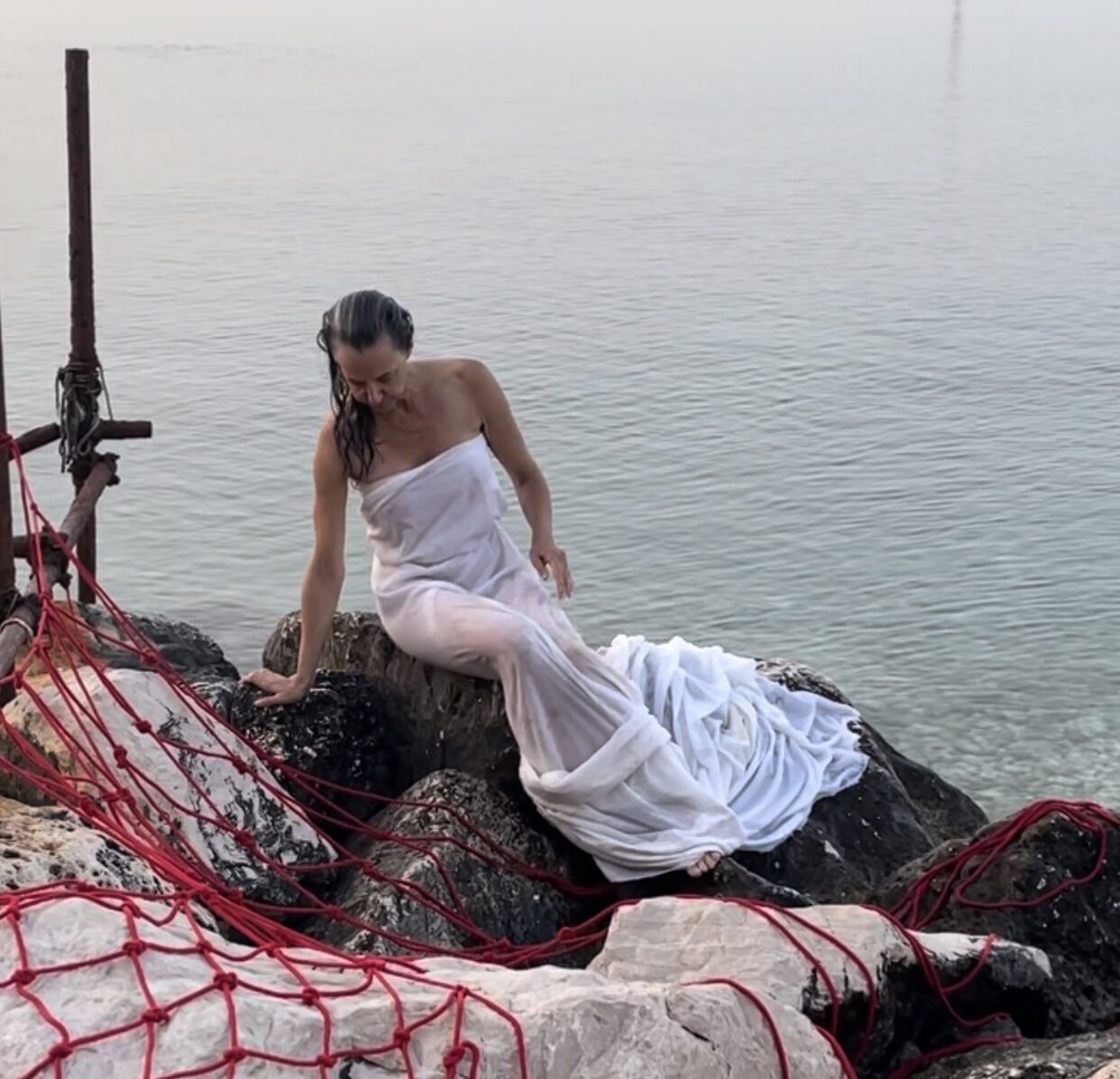Every visualisation of the selected videos to launch PAV will be for free until October 1, 2023, thanks to the generous contribution of the featured artists.
For centuries, the Mediterranean Sea has occupied a central place in the evolution of human society and Europe. It is both a physical barrier to human mobility and an element that connects land and continents. Odysseus pursued his hero’s journey around the Mediterranean basin. Today, the Mare Nostrum is a precarious, tragic space where immigrants, attracted by the siren’s song of salvation and sanctuary in Europe, embark on a perilous journey that could lead them to exclusion or inclusion. The word siren stems from the Greek σειρά (seirá: rope, cord) and εἴρω (eírō: to tie, join, fasten), resulting in the meaning of the one who binds or entangles. Therefore, the siren will knot deceptive nets of blood-red ropes on the Mediterranean seashore, ultimately leaving them behind. Whether they stay there to protect or imprison, for salvation or damnation remains unclear.
Vittorio Venturoli writes this performative piece brings one to reflect on the dual relationship of migrants with the Mediterranean. Vehicle of migrations, the sea is numb and neutral in its endless role of levelling, smoothening edges, softening, tie after tie, even the sharpest will. Even the loudest storms are muted with time into a still, quiet fairness. It never alters the motion of its impartial ruling. And so, as guardians, instruments of its blind justice, the sirens weave the net of its will, enveloping wanderers, conquerors and fugitives. The performer embodies the siren—the tool of its choice, the voice of the waves, an ambiguous
Concession: if you cannot afford to pay the full price, please send as us email.


We are processing your request.
In a few minutes we will notify you.